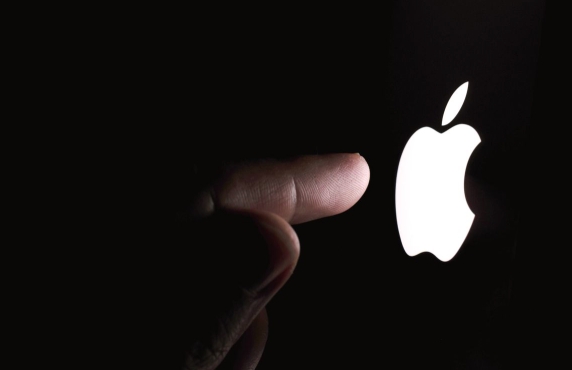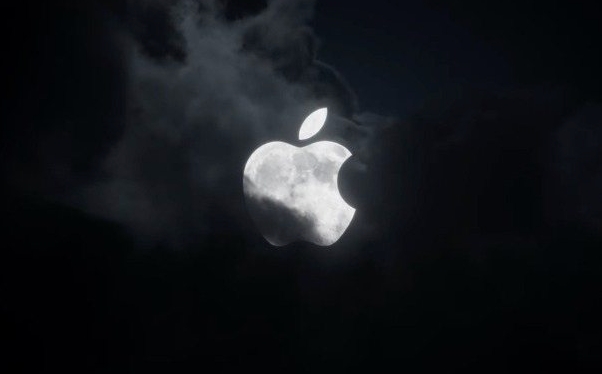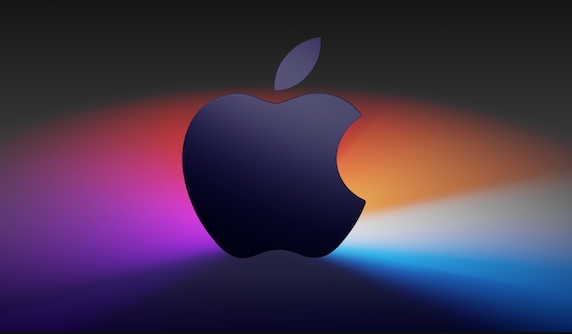The Library folder on Mac can be accessed using several methods: 1. For the user-specific Library folder, use the Go menu in Finder while holding the Option key, use Spotlight to search "Library," or go directly via Command Shift G and type ~/Library; 2. For the system-wide Library folder, use Command Shift G in Finder and type /Library; 3. To make the user Library folder always visible, create an alias or use Terminal commands chflags nohidden ~/Library, and to re-hide it, use chflags hidden ~/Library, with key subfolders including Preferences, Application Support, Caches, and Logs, which store critical settings and data, so modifications should be made cautiously to avoid affecting system or app stability.

The Library folder on Mac contains important system and user-specific settings, app data, caches, and preferences. While it's hidden by default in macOS to prevent accidental changes, you can access it easily. Here’s how to find it:

1. Access the User Library Folder
This Library folder is specific to your user account and is located at ~/Library (the tilde ~ stands for your home directory).
Method 1: Use the Go Menu in Finder

- Open a Finder window.
- Click Finder in the menu bar, then choose Go.
- Hold down the Option (Alt) key — this reveals the hidden Library option in the dropdown.
- Click Library to open it.
Method 2: Use Spotlight
- Press Command Space to open Spotlight.
- Type Library, then select Library (folder) from the results.
Method 3: Go Directly to the Path

- In Finder, press Command Shift G to open "Go to Folder".
- Type
~/Libraryand press Enter.
2. Access the System Library Folder
This is located at /Library (not in your home folder) and contains settings and resources used by all users on the Mac.
- In Finder, press Command Shift G.
- Type
/Libraryand press Enter.
This folder includes system-wide preferences, application support files, and more.
3. Make the User Library Folder Always Visible (Optional)
If you frequently need access:
- Open your home folder (usually named after your username).
- Right-click (or Control-click) on the Library folder.
- Choose Make Alias.
- Move the alias to your desktop or another convenient location.
Alternatively, you can unhide it via Terminal:
chflags nohidden ~/Library
To hide it again:
chflags hidden ~/Library
Key Subfolders in the Library Directory
Inside the Library folder, you’ll find useful directories like:
-
Preferences – stores
.plistfiles for app and system settings. - Application Support – holds data for apps, including plugins and saved states.
- Caches – temporary files that can be safely deleted to free up space.
- Logs – diagnostic logs from the system and apps.
Just be careful not to delete or modify files unless you know what they do — changes here can affect app behavior or system stability.
Basically, the Library folder is easy to reach once you know the shortcuts. It's hidden by design, but not locked away.
The above is the detailed content of Where is the Library folder on Mac?. For more information, please follow other related articles on the PHP Chinese website!

Hot AI Tools

Undress AI Tool
Undress images for free

Undresser.AI Undress
AI-powered app for creating realistic nude photos

AI Clothes Remover
Online AI tool for removing clothes from photos.

Clothoff.io
AI clothes remover

Video Face Swap
Swap faces in any video effortlessly with our completely free AI face swap tool!

Hot Article

Hot Tools

Notepad++7.3.1
Easy-to-use and free code editor

SublimeText3 Chinese version
Chinese version, very easy to use

Zend Studio 13.0.1
Powerful PHP integrated development environment

Dreamweaver CS6
Visual web development tools

SublimeText3 Mac version
God-level code editing software (SublimeText3)
 Internet Archive loses appeal in case concerning 500,000 digital books
Sep 07, 2024 am 06:35 AM
Internet Archive loses appeal in case concerning 500,000 digital books
Sep 07, 2024 am 06:35 AM
The Internet Archive has lost its appeal in a court case involving the distribution and lending of over half a million digital books. The decision, which was issued Wednesday by the Second Circuit Court of Appeals, is the latest blow to the Internet
 Guide to installing PHP on Mac
Dec 12, 2024 am 11:46 AM
Guide to installing PHP on Mac
Dec 12, 2024 am 11:46 AM
PHP is a widely used programming language for web development and you can install PHP on your Mac by following these steps
 How to use an iPad as a second display for Mac
Jul 03, 2025 am 01:01 AM
How to use an iPad as a second display for Mac
Jul 03, 2025 am 01:01 AM
To use the iPad as a Mac sub-screen, you can use the Sidecar function. The steps are as follows: First, make sure the device meets the requirements (Mac will run macOSCatalina and above after 2016, and iPad requires iPadOS13 or above); then go to "System Settings" > "Display" on the Mac, click "Add Monitor" and select iPad to connect; if it is unable to connect, you need to check whether Wi-Fi and Bluetooth are on, and make sure the two devices are in the same network environment. In terms of connection mode, wireless is suitable for daily office work but may have delays, while wired is more stable and supports charging. The display mode is divided into two types: extension and mirroring. It is recommended to use extension mode to improve work efficiency. In addition, it can also be achieved through preferences
 How to access an NTFS drive on a Mac?
Jun 21, 2025 am 12:08 AM
How to access an NTFS drive on a Mac?
Jun 21, 2025 am 12:08 AM
There are three ways to enable NTFS hard disk write permission on macOS: 1. Use third-party software such as ParagonNTFSforMac, TuxeraNTFSforMac or free Mounty, and automatically support read and write operations after installation; 2. Enable the write function by manually editing configuration files through terminal commands, and SIP needs to be turned off and there is a risk of data corruption, which is suitable for advanced users; 3. Format the hard disk into compatible formats such as exFAT or FAT32 to realize two-way read and write support between Mac and Windows, but will clear the original data.
 How to set up file sharing between two Macs on the same network?
Jul 14, 2025 am 12:08 AM
How to set up file sharing between two Macs on the same network?
Jul 14, 2025 am 12:08 AM
To share files between two Macs on the same network, first make sure that the two devices are connected to the same LAN, then enable file sharing on the host, set shared folders and access permissions, and then connect from another Mac through the access sidebar or manually enter the SMB address, and finally you can browse, copy or transfer files. Common problems include waiting or restarting the network when the device cannot be discovered. If the permissions are incorrect, you need to check the username, password and sharing settings. If the connection fails, you can try the SMB address. If the firewall blocks, you can temporarily close the test.
 How to find large files on my Mac?
Jul 01, 2025 am 12:06 AM
How to find large files on my Mac?
Jul 01, 2025 am 12:06 AM
To free up Mac storage space, you can use three methods to find and process large files: 1. Use the system's own storage management tool to view the "big file" list in "About Native" - ??"Storage"; 2. Set file size and modification time in Finder to search for large files; 3. Use third-party tools such as DaisyDisk, OmniDiskSweeper or GrandPerspective to scan and visualize disk usage. Each method has its own advantages, the system tools are convenient and fast, Finder provides more accurate search options, and third-party software provides stronger analysis functions. Remember to clear the wastebasket after deleting it to avoid remaining space.
 How to use a Windows keyboard on a Mac
Jul 08, 2025 am 12:12 AM
How to use a Windows keyboard on a Mac
Jul 08, 2025 am 12:12 AM
When typing on a Mac using a Windows keyboard, the Win key corresponds to the Command key and the Alt key corresponds to the Option key; 1. Understand the key mapping: The Win key replaces the Command key for commonly used shortcut keys such as Command C/V, the Alt key replaces the Option key for special symbol input, and the right Alt key may be mapped to Control or other functions; 2. Adjust the keyboard mapping can be customized through system settings or third-party tool Karabiner-Elements; 3. In terms of function keys and multimedia key support, the F key needs to be used with the Fn key, the default brightness and volume function can be adjusted, and some brand shortcut keys are incompatible and need to be customized; 4. Common shortcut key comparison includes copy and paste.
 Why is my Bluetooth mouse lagging or stuttering on my Mac?
Jul 03, 2025 am 12:11 AM
Why is my Bluetooth mouse lagging or stuttering on my Mac?
Jul 03, 2025 am 12:11 AM
Latency or lag on a Bluetooth mouse on a Mac is usually caused by a variety of factors, including wireless interference, low battery, system problems, or multi-device connection overload. 1. Wireless device interference: Keep Mac and mouse away from interference sources such as routers, USB3.0 devices, or switch Wi-Fi to 5GHz band. 2. Mouse battery level is insufficient: Check the battery status and replace the battery through the system settings or the mouse’s own indicator light. 3. The system or Bluetooth driver is not updated: Go to system settings to update macOS and try to reset the Bluetooth module through the debug menu. 4. Too many Bluetooth devices: disconnect unused peripherals, or use a Bluetooth USB adapter to share the load. Gradually checking the above problems can effectively solve the phenomenon of mouse lag.






